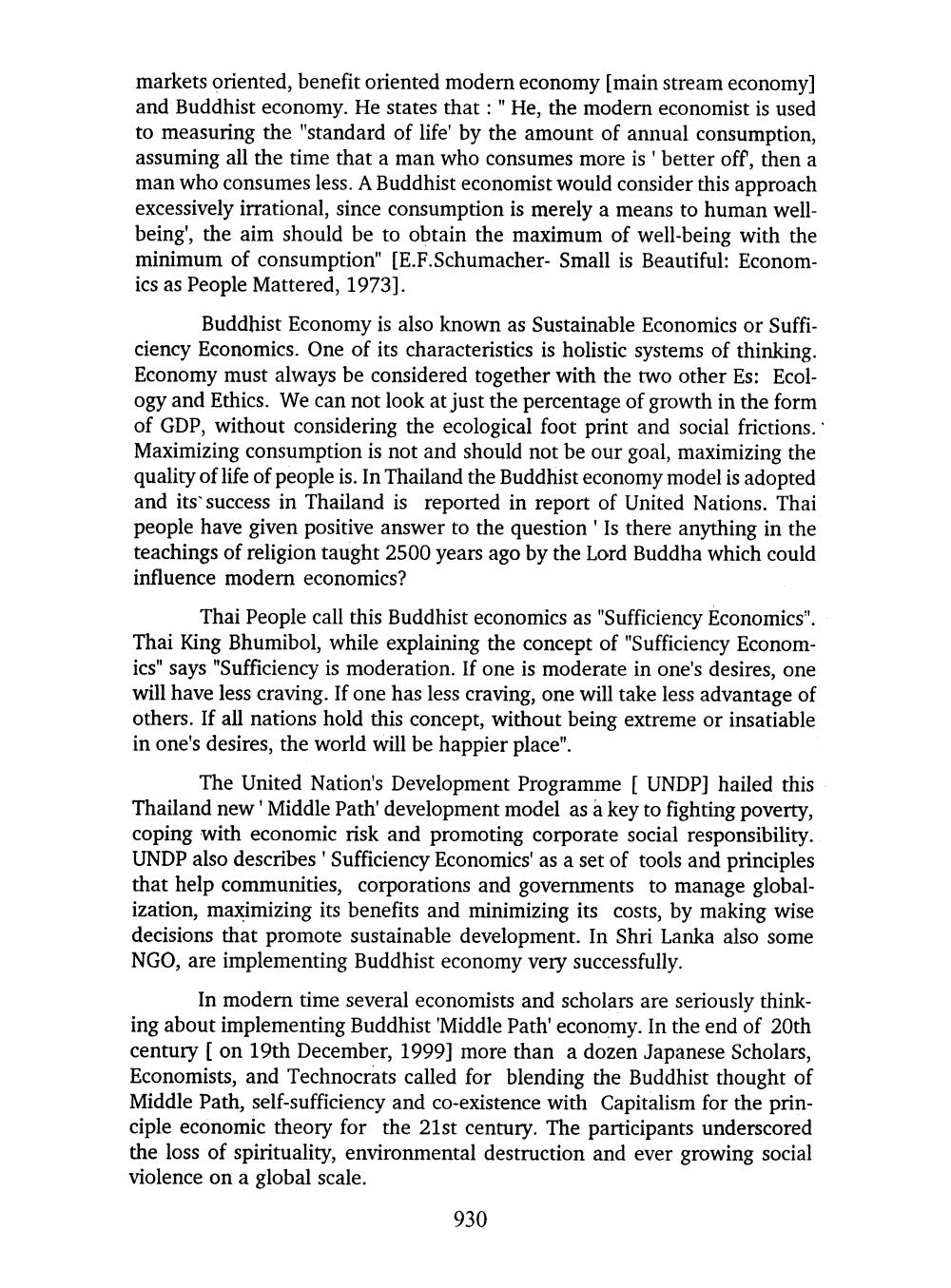________________
markets oriented, benefit oriented modern economy (main stream economy] and Buddhist economy. He states that : "He, the modern economist is used to measuring the "standard of life' by the amount of annual consumption, assuming all the time that a man who consumes more is' better off, then a man who consumes less. A Buddhist economist would consider this approach excessively irrational, since consumption is merely a means to human wellbeing', the aim should be to obtain the maximum of well-being with the minimum of consumption" (E.F.Schumacher- Small is Beautiful: Economics as People Mattered, 1973].
Buddhist Economy is also known as Sustainable Economics or Sufficiency Economics. One of its characteristics is holistic systems of thinking. Economy must always be considered together with the two other Es: Ecology and Ethics. We can not look at just the percentage of growth in the form of GDP, without considering the ecological foot print and social frictions. Maximizing consumption is not and should not be our goal, maximizing the quality of life of people is. In Thailand the Buddhist economy model is adopted and its success in Thailand is reported in report of United Nations. Thai people have given positive answer to the question 'Is there anything in the teachings of religion taught 2500 years ago by the Lord Buddha which could influence modern economics?
Thai People call this Buddhist economics as "Sufficiency Economics". Thai King Bhumibol, while explaining the concept of "Sufficiency Economics" says "Sufficiency is moderation. If one is moderate in one's desires, one will have less craving. If one has less craving, one will take less advantage of others. If all nations hold this concept, without being extreme or insatiable in one's desires, the world will be happier place".
The United Nation's Development Programme [ UNDP) hailed this Thailand new 'Middle Path' development model as a key to fighting poverty, coping with economic risk and promoting corporate social responsibility. UNDP also describes 'Sufficiency Economics' as a set of tools and principles that help communities, corporations and governments to manage globalization, maximizing its benefits and minimizing its costs, by making wise decisions that promote sustainable development. In Shri Lanka also some NGO, are implementing Buddhist economy very successfully.
In modern time several economists and scholars are seriously thinking about implementing Buddhist 'Middle Path' economy. In the end of 20th century [ on 19th December, 1999] more than a dozen Japanese Scholars, Economists, and Technocrats called for blending the Buddhist thought of Middle Path, self-sufficiency and co-existence with Capitalism for the principle economic theory for the 21st century. The participants underscored the loss of spirituality, environmental destruction and ever growing social violence on a global scale.
930




